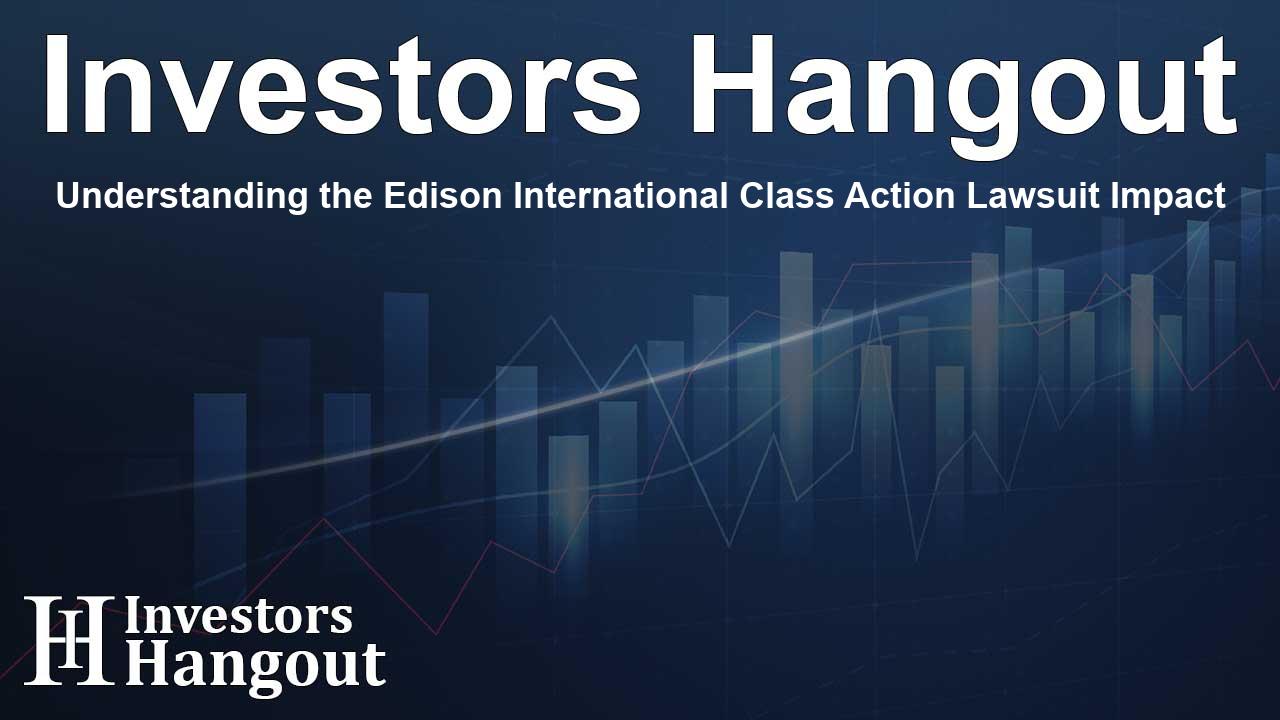Understanding the Edison International Class Action Lawsuit Impact

Insights into the Edison International Class Action Lawsuit
The recent initiation of a class action lawsuit against Edison International (NYSE: EIX) has raised significant concerns among stockholders and investors. Robbins LLP is at the forefront, informing the public about the developments and what shareholders need to know regarding their rights and options in this matter.
Background of the Lawsuit
The class action was filed on behalf of all individuals or entities that purchased or acquired Edison International securities within a specified timeframe. This period indicates serious allegations about the company's operational practices and their potential consequences for investors. Edison stands out primarily because it is the parent company of Southern California Edison Company and Edison Energy Group, a prominent figure in energy supply and services.
The Allegations Against Edison International
The allegations within the lawsuit center around the use of Edison’s Public Safety Power Shutoffs (PSPS) program. The complaint asserts that the company made false claims regarding its commitment to safety during fire seasons. Specifically, it contends that rather than mitigating risks through proactive de-energization of power lines, the actions taken may have inadvertently heightened fire risks affecting the community and raising legal liabilities for the company.
Detailed Account of Events
A significant fire incident took place in Eaton Canyon, which serves as a critical point in the ongoing legal narrative. It raised questions about Edison’s safety protocols. According to reports, Edison admitted that there were no operational issues leading up to the fire's ignition, contradicting earlier reassurances. This revelation sparked immediate reactions from investors and caused a noticeable decline in the company's stock price.
Investor Reactions and Market Response
The fallout from the situation was swift. As the allegations gained traction and public knowledge, Edison's stock saw a dip of nearly 12%, emphasizing how sensitive the market can be to issues of corporate governance and safety. Further media articles, particularly one from a prestigious outlet, heightened investor anxieties, causing additional drops in stock value. This has led to increasing calls for accountability and action from stockholders.
What Should Investors Do Now?
For shareholders, understanding the implications of being involved in a class action can be crucial. Investors interested in reclaiming potential losses may want to consider reaching out to Robbins LLP to explore their options. There's a chance for shareholders to apply to be lead plaintiffs in the case, which allows them to represent their peers and shape the litigation’s direction.
Importance of Participation
Participation does not require being an active participant in all court proceedings; however, it provides a unique opportunity to influence the outcome of the case. Shareholders might also choose to remain as absent class members while still being eligible for potential recoveries.
About Robbins LLP and Their Mission
Robbins LLP, founded in 2002, has gained recognition as a leader in shareholder rights law. The firm has a strong commitment to helping investors recover losses incurred due to corporate mismanagement and misconduct. Their work emphasizes the importance of corporate governance and accountability among executives.
Staying Informed
For stakeholders keen on keeping abreast of developments regarding the Edison International class action lawsuit, staying informed is vital. Signing up for alerts and updates ensures that one is updated on any significant changes or settlements, enabling better-informed investment decisions moving forward.
Frequently Asked Questions
What is the primary issue in the Edison International class action?
The class action arises from allegations that Edison International's safety claims regarding their power lines during fire seasons were misleading, contributing to heightened fire risks.
How can shareholders become involved in the lawsuit?
Shareholders may contact Robbins LLP to evaluate their eligibility to participate, including the possibility of being lead plaintiffs in the class action.
What are the potential outcomes for investors?
Investors may recover losses if the class action results in a favorable settlement or judgment against Edison International.
What constitutes a lead plaintiff in a class action lawsuit?
A lead plaintiff is an individual or entity that represents the interests of the entire class, helping direct the litigation process on behalf of all involved shareholders.
Can investors remain passive in the class action?
Yes, investors can choose to remain absent class members and still be eligible for any recovery resulting from the lawsuit.
About The Author
Contact Olivia Taylor privately here. Or send an email with ATTN: Olivia Taylor as the subject to contact@investorshangout.com.
About Investors Hangout
Investors Hangout is a leading online stock forum for financial discussion and learning, offering a wide range of free tools and resources. It draws in traders of all levels, who exchange market knowledge, investigate trading tactics, and keep an eye on industry developments in real time. Featuring financial articles, stock message boards, quotes, charts, company profiles, and live news updates. Through cooperative learning and a wealth of informational resources, it helps users from novices creating their first portfolios to experts honing their techniques. Join Investors Hangout today: https://investorshangout.com/
The content of this article is based on factual, publicly available information and does not represent legal, financial, or investment advice. Investors Hangout does not offer financial advice, and the author is not a licensed financial advisor. Consult a qualified advisor before making any financial or investment decisions based on this article. This article should not be considered advice to purchase, sell, or hold any securities or other investments. If any of the material provided here is inaccurate, please contact us for corrections.
